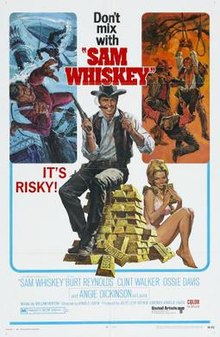

Living up in the air like a rich seagull. When playboy Jonas Cord (George Peppard) inherits his father’s industrial empire based on an explosives factory, he expands it by acquiring an aircraft factory and Hollywood movie studio. His rise to power during the 1920s and 1930s is ruthless. He sets aviation records and starts a passenger airline. He marries and then quickly abandons sweet, bubbly Monica Winthrop (Elizabeth Ashley) the daughter of a business rival and provokes their divorce before she gives birth to their daughter; turns his young, gorgeous stepmother, Rina Marlowe (Carroll Baker), who was his girlfriend originally before his father Jonas Sr. (Leif Erickson) married her, into a self-destructive movie star; and manages to disappoint even his closest friend and surrogate father, cowboy movie star Nevada Smith (Alan Ladd) whose concealed background he uses for a movie script. Then he falls for a prostitute Jennie Denton (Martha Hyer) whom he wants to turn into the movie star of America’s dreams… If that woman ran an immoral house she’d have to pay me. Despite the lurid and sadistic content of Harold Robbins’ sensational 1961 bestseller, a roman à clef which mines the contours of a Howard Hughes-type protagonist, and censorship issues aside, this is a strangely muted adaptation by John Michael Hayes and Edward Dmytryk’s stilted direction doesn’t help. The real shocker is the fight scene between Peppard and an ageing Ladd which looks properly dangerous and finally explores Cord’s psychology but it’s truly disturbing because it feels real, unlike much of the drama. As a portrait of the Thirties movie-making scene it’s certainly got a nose for the Hollywood casting couch mentality and its general air of seedy decadence and corruption. In that light it’s an interesting take on the career of the Harlow rip off played by Baker (and she made the biopic the following year). Robert Cummings is properly horrifying as Dan Pierce, the smooth agent who is a pimp in all but name; and Martin Balsam scores as Bernard B. Norman, a dastardly studio head; but in many ways, including performance, with Peppard the main culprit, this is all trash, all surface. Ladd’s character is a mélange of Tom Mix, William Boyd and Ken Maynard: the prequel, Nevada Smith, would be directed by Henry Hathaway from a John Michael Hayes script with Steve McQueen in the lead. Ladd died before this was released. Only you know how all the pieces fit








